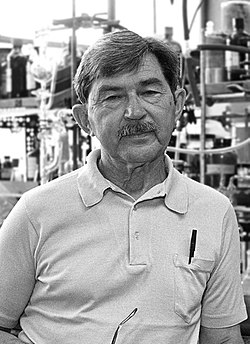Academics
- Heribert Adam – political sociologist with a focus on ethnonationalism, born in Germany [1]
- Hans Heilbronn – mathematician born in Berlin [2]
- Fritz Heichelheim – German Jewish historian of ancient economics, born in Giessen, Hesse [3]
Scientists

- Abraham Pineo Gesner – physician and geologist, inventor of kerosene [4]
- Gerhard Herzberg – physicist and physical chemist; Nobel Prize in Chemistry (1971) [5]
- David H. Hubel – neurophysiologist; Nobel Prize in Physiology or Medicine (1981) [6]
- Heinz Lehmann – psychiatrist, known for his use of chlorpromazine in treating schizophrenia [7]
- Walter Mandler – lens designer for ELCAN, pioneer in computer-aided design
- Georg Naumann – trapper, explorer, and self-taught scientist who studied the Athabasca oil sands, born in Radeberg, Saxony
- Bernhard Schlegel – computational and theoretical chemist born in Frankfurt am Main [8]
- Henry Taube – chemist; Nobel Prize in Chemistry (1983) [9]

